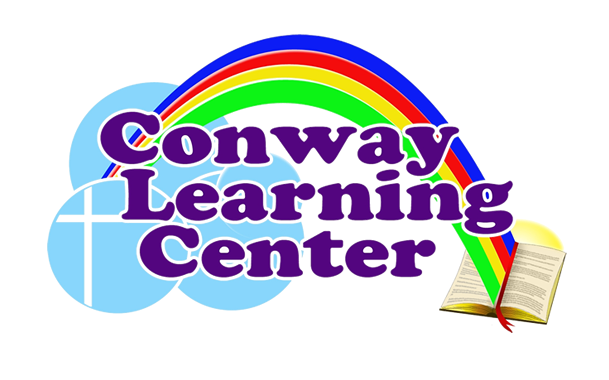Our Programs
Our Curriculum
Our early learning program, paired with the Wee Learn Curriculum, is designed to enhance the physical development, approaches to learning, social and emotional development, language and literacy, mathematical thinking, scientific thinking, scientific inquiry, and social studies development of each and every child here at Conway Learning Center, by providing engaging lesson plans and activities through a Christian based curriculum taught by trained and experienced teachers.
Wee Learn Curriculum
Wee Learn Curriculum is framed by the theory and philosophy of life. Led by faith and grounded in evidence based practices. Programs using Wee Learn philosophy and curriculum work to support Children and families. Children’s individual differences and learning styles are considered as children learn through play and interactions with supportive early childhood teachers to maximize each child’s learning potential.
Age Groups
Learning Areas
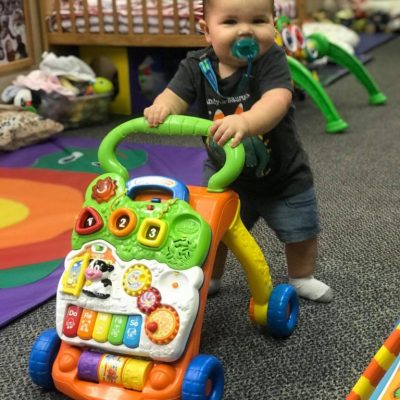
Infants/Toddlers
Conway Learning Center’s Infant/ Toddler Program enhances your baby’s natural curiosity and early experiences to instill an everlasting love of learning.
At Conway Learning Center we believe in building trust through positive interactions by implementing the
“Circle of Security”. Circle of security is designed to enhance attachment security between teachers and children. Teachers are trained to identify your child’s requests and manage their social- emotional needs of care outside of the home. Knowledgeable teachers follow cues to care for your child weather they are hungry, tired, need a change of scenery or just need some comforting cuddles.
Conway Learning Center acknowledges that all children grow and develop at different rates, and that’s OKAY! We provide weekly faith based lesson plans that encourage learning and development through activities and play. The Infant Lesson Plan focuses on cognitive development, social- emotional development, language development, fine and gross motor development skills, as well as, music and movement, creative expression art activity, and sensory activity.
- Reading stories encourages use of language
- Singing songs develops first approaches to early literacy
- ASL starting at 8 months old encourages communication and independence
- Tummy time builds large muscles
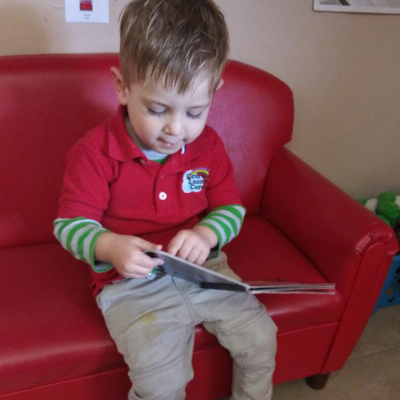
Twos
Conway learning center offers a unique toddler program that enhances curiosity through play and small group learning.
Our classrooms are set up with seven different learning areas to engage your energetic two year olds while they explore and grow. We recognize the need for trial and error at this age as your toddler builds social relationships and gain confidence. Our highly trained teachers provide many opportunities throughout the day that will enhance your growing toddlers needs, such as, music and movement, small group interactive learning, sensory integration and many opportunities for language acquisition.
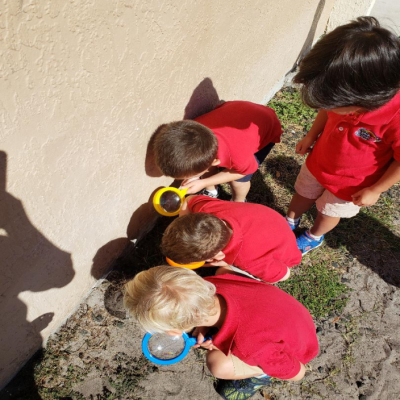
Threes
Three year olds are great observers and explorers. Our classrooms are designed as a learning community with exciting new experiences and age appropriate lessons. Our three year olds love silly songs, story time, and word games that allow them to enjoy their new found sense of humor. Preschoolers strive to perfect their fine and gross motor skills, and they are eager to learn. At CLC, your three year old’s day is filled with activities that engage their minds and bodies, and embrace their imagination and curiosity! We believe that each student is an individual and through age appropriate interaction and activities they are able to meet their full potential.
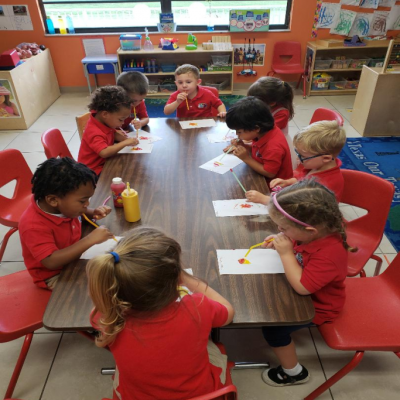
Fours
Conway learning center has created a superior four year old program designed to embrace the needs of children that are constantly growing and changing as they prepare to become independent learners.
As you take a look into the four year old program here at Conway learning center you will find a structured learning environment where both teachers and children take an active role in the learning process. Both the materials and space have been arranged to promote active learning. Lesson plans are filled with enriched learning activities centering around the early learning educational standards developed by the Florida department of early learning and the wee learn curriculum. These lesson plans are designed to promote exploration and discovery. Outdoor activities and healthy meals plans are also a part of the daily four year old program offered at Conway learning center.
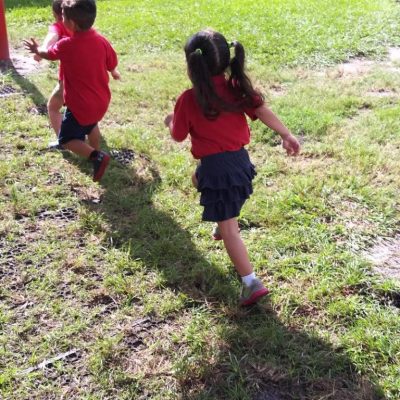
VPK
Conway Leaming Center offers a high-quality education program that has a variety of learning opportunities where children are taught in a class setting, in small groups or one on one with the teachers. Lessons plans are in line with the Florida Early Leaming and Developmental Standards in educating children’s intellectual, creative and emotional skills. Most of a child’s brain’s growth is established during the first five years of a child’s life. Conway Leaming Center has provided a framework for the planning of quality early learning experiences for our four year olds. Our VPK program is designed for teachers to “connect the dots” by linking your child’s experiences to learning objectives. Parents are welcome to come in and learn from the teachers what the children are doing and also why they’re doing it. Conway Leaming Center’s ultimate goal is to have your four year old children ready for kindergarten.
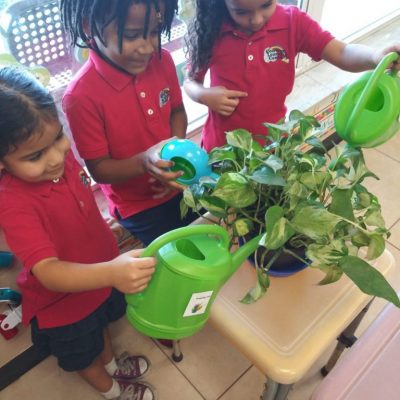
Science Interests
In the Science/Interest Area, children can explore, observe, predict, discuss and discover with self-directed or teacher initiated activities. The children will engage in activities that compare similarities and differences and sensory activities. They will have the opportunity to have experiments, observe and analyze nature objects, participate in cooking activities and observe changes in matter, take care of living things such as plants and animals. etc.
Materials: Open ended materials; magnifying glasses, kaleidoscopes, magnets, live animals, nature materials such as leaves, rocks, water, variety of beans, grains, peas, spices etc.
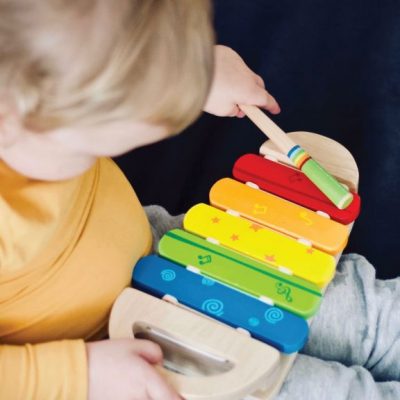
Music Area
In the Music Area, children can explore, create, improvise, and discover with self-directed or teacher initiated activities; creating rhythmic music, percussion, singing and dancing. Opportunities are available to create their own music or follow in group activities with instruments and pre-recorded music. Children are encouraged to dance and sing.
Materials: Open ended materials; triangles, symbols, rhythm sticks, maracas, blocks, hand bells, scarves and ribbons, pre-recorded music, etc.
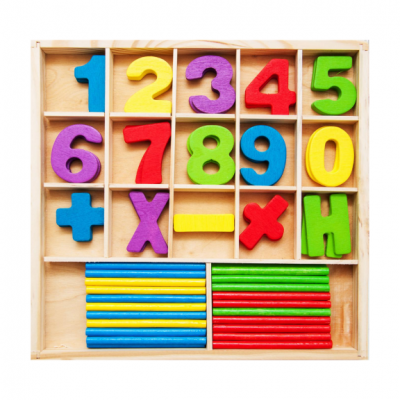
Math Area
In the Math Area, children can sort and match things that are the same or different, arrange things in simple patterns based on their characteristics. They will begin the concepts of ordinal order, algebra, fractions and geometry. They are beginning to understand the meaning of words and phrases like “more, less, a lot, and the same as”. They are starting to use measurement to describe, compare and order things using unconventional tools (pieces of string, sticks and their footsteps) or conventional tools (rulers and measuring cups).
Materials: Counting games, measuring cups, matching games, dominoes, pattern blocks, plastic chain links, counting bears, dice, shapes, money, rulers, etc.
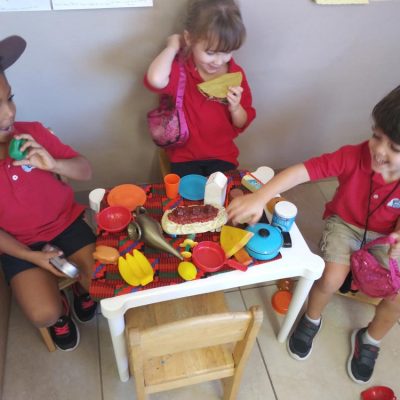
Drama Area
In the Drama Area, children socialize with other children, pretend and imagine that they are other people and things, imitate adults in their lives, develop self-esteem and confidence. They learn skills such as: making and expressing choices, planning and decision making, dealing with social conflict, creating and experiencing collaborative play, and being sensitive to the feeling, interests and needs of others.
Materials: multi-culture dolls, dress-up clothing from many cultures and industries, household props (dishes, cooking utensils, spoons, chop sticks, telephone, etc.), restaurant and grocery items, a variety of music, photos of different family groupings, cash register, doctor’s kit, wood working tools, etc.
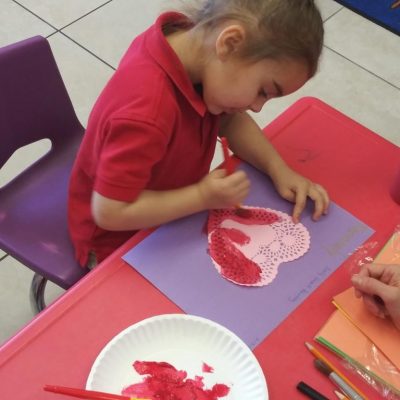
Creative Area
In the Creative /Art Area, children manipulate a variety of art materials and express themselves through art: write, draw, paint, color, and create two and three dimensional representations. They relate models and pictures to real places and things. Children develop skills in motor development (pincer grasp, palmer grasp, eye-hand coordination, and large motor movement, etc), turn taking, sharing, problem solving, language skills, pre-reading and writing skills etc.
Materials: A variety of paper, writing and drawing tools, paints, stencils, boxes, yarn, cotton balls, cloth, nature items, playdoh, easel, etc.
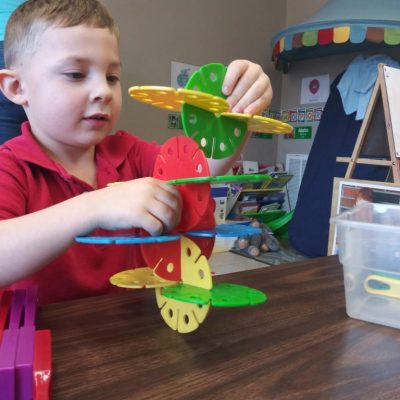
Cognitive/Manipulative Area
In the Cognitive / Manipulative Area, children distinguish and describe; (shapes, color, number, attributes of things), explore, problem solve, rote and rational counting, sort and match, compare, money, etc. They develop skills in language and literacy, social relations, cognitive thinking, classification, seriation, color, number, spatial relations, patterning, etc.
Materials: Number games, Color games, Memory games, building materials, blocks, self-help board puzzles, books, nuts & bolts, lacing beads and boards, pegs, thistle blocks, linking fish, etc.
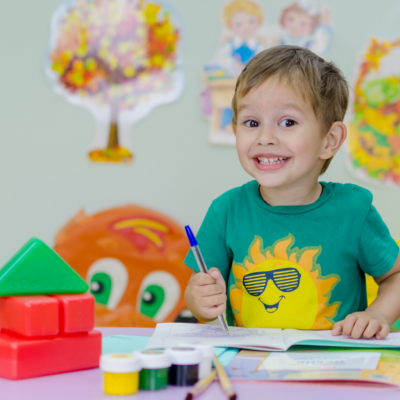
Book/Language Area
In the Book Area and Language Areas, children look at a wide variety of print materials, have stories read to them, listen to stories on CD, create stories, retell and act out stories etc. They also look at photographs, pictures, printed words etc. Children develop receptive and expressive language skills in listening and pre-writing (recognizing letters, making sounds, matching words with pictures etc.) They develop an expanding vocabulary with extended sentence structure and increase their conversational skills.
Materials: A variety of books and CDs in many languages, puppets, puppet theatre, pictures, writing tools, paper, picture cards, word cards, alphabet bean bags, alphabet magnets, alphabet games, etc.
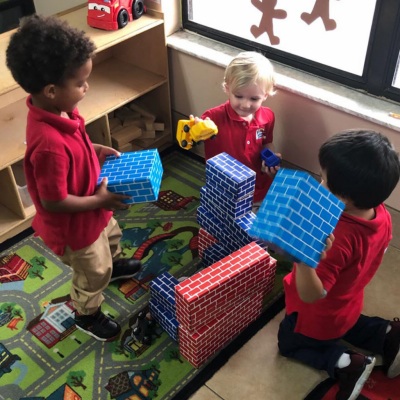
Block Area
In the Block Area, children build, take apart, improvise, take turns, share and discuss ideas, problem solve, and make believe etc. They develop motor skills, math skills (sorting, matching, counting, parts and wholes), comparing attributes, social skills, and the different levels of interaction using a variety building materials (manipulation, mastery and meaning level).
Materials: A variety of blocks, (Unit blocks, shape blocks, Lego blocks etc.) Vehicles, (cars, trucks, tractor, fire-truck, emergency vehicles, boats, space vehicles) diverse sets of people, (families, community helpers, people with disabilities, construction workers, babies, etc.), animals (jungle, farm, zoo), traffic signs, and other accessories, etc.)
